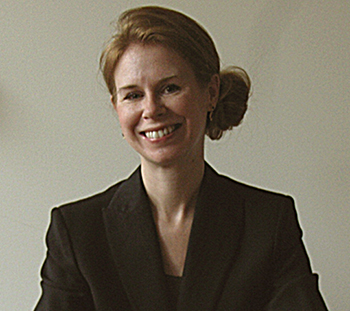Behind the Music: Challenging “Music as Resistance”

This series will introduce the scholars and musicians who will participate in USC Shoah Foundation Center for Advanced Genocide Research’s international workshop Singing in the Lion’s Mouth: Music as Resistance to Genocide, Oct. 10-11, 2015. The event will include two days of programming that highlight the use of music as a tool to resist oppression and spread awareness, including film screenings, and academic symposium and a concert

At the academic symposium, scholars will discuss how music was used as resistance in a number of conflicts around the world. Tina Frühauf will instead focus on the very definition of “resistance” itself.
Currently on the faculties of Columbia and CUNY, Frühauf focuses her research on music in Jewish communities from the 19th to 21st centuries. Following the centennial of the Armenian Genocide this spring, she became particularly interested in how definitions of resistance can be applied to genocides in general.
Her presentation, “Sounds Before Surrender: Theory and Actuality of Jewish Musical Resistance under Nazi Rule,” will question whether music making truly represented resistance. Unlike the general claim that music making in camps and ghettos functioned as an expression of resistance, Frühauf will propose that the concept of resistance can actually be attributed to the post-Holocaust perceptions of Jews as survivors vs. victims.
Drawing on the Jews in Berlin who were not yet deported or who lived in hiding as a case study, Frühauf will redefine the concept of resistance, discuss how and in what context it occurs, with which means, and to what effect. She will propose a theory of musical resistance that suggests that music is resistance only under specific circumstances, when it represents the collected identity of the persecuted group, but does not have to be a collective act.
Frühauf’s research will provide a valuable counterpoint to the other presentations, hopefully inspiring the other scholars to think critically about what the idea of “music as resistance” actually means and when to use it.
“The danger in any research is that we adopt a paradigm without questioning it; my lecture specifically deals with the question of what resistance actually means,” Frühauf. “Hopefully, my peers and the audience will more mindfully think about the meaning of resistance, and not merely use it because it is a powerful term.”
She is looking forward to the discussions that will ensue at the symposium and hopes the other scholars really engage in each other’s work. Music can be a key component in studying genocide, she said.
“Following Lubavitcher thought, music is the language of the heart,” Frühauf said. “It can provide us with entirely different insights than other perspectives in the field of genocide studies offer.”